
Microbiota strains
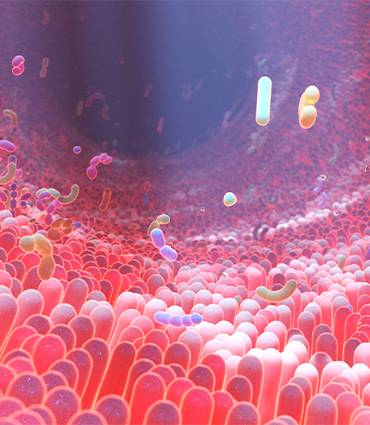
Description
The intestinal microbiota corresponds to all the non-pathogenic micro-organisms (bacteria, fungi sand viruses) belonging to the intestinal flora.
It is in the colon that the intestinal microbiota is the densest, with 1011 to 1012 bacteria per gram of matter. It is also known that the number of living micro-organisms that populate our intestine is largely superior to the number of cells in the human body.
These figures leave one wondering, but they clearly underline the need to take care of one's microbiota, since these microorganisms play such an essential role in the functioning of our body.
The power is in us!
These bacteria are divided into several branches, each of them being called phylum. The three main phyla correspond to the :
- Firmicutes, of which the Lactobacilli is a part ;
- Actinobacteria, represented by the bacteria of the genus Bifidobacterium ;
- Bacteroidetes, phylum in which we find Bacillus and Prevotella.
The strains of microbiota most commonly used as probiotics correspond to bacteria such as Bifidobacterium, Lactobacillus acidophilus, Lactobacillus casei and Lactobacillus rhamnosus.
The diversity of bacteria in the intestinal microbiota constitutes a real wealth. Their "superpowers" come from their enzymes, which differ according to the phylum and the species of bacteria. Bacterial enzymes are involved in the breakdown of foods that the human body is unable to digest, such as fibers, for example.
In this cooperation, the human host provides nutrients to the bacteria, which in turn synthesize vitamins and release minerals for use by the body. The bacteria of the microbiota can vary from one population to another and from one individual to another, notably with differences in the proportion of the different phyla.
The specific term used to designate the biological interactions between humans and bacteria is "commensalism". These interactions, which could be described as "goodwill exchange", are similar to a symbiosis, i.e. a lasting and mutually beneficial association between two or more organisms.
By colonizing our digestive tract, the microbiota creates optimal conditions for its development, its barrier function leaving little room for pathogenic bacteria.
Several studies have shown that the bacteria of the microbiota contribute to the proper functioning of the immune system and the digestive system, particularly by promoting the digestion of lactose and improving intestinal transit.
A richness that is far from inexhaustible!
However, the alliance between the microbiota and its human host is fragile. Certain factors, such as an insufficiently diversified diet, low in fiber, too much salty, but also the consumption of alcohol or tobacco, a bad lifestyle or even taking antibiotics can break this balance. Some beneficial bacteria can then disappear and be replaced by pathogenic bacteria. This is called dysbiosis.
The benefits
Probiotics: an organized seeding
Probiotics are playing an increasingly important role in food supplements. As such, the contribution of "good" bacteria has been the subject of numerous studies aimed at demonstrating their major role in the prevention and treatment of various disorders. However, the effectiveness of probiotics depends on the quantity and regularity of the bacteria intake.
The strains of bacteria most frequently used in probiotics are Lactobacillus plantarum, Lactobacillus rhamnosus GG and Bifidobacterium. These latter strains are considered to be the most effective in reducing the symptoms of irritable bowel syndrome (IBS).
In addition, the use of probiotics in the prevention and treatment of infectious diarrhea is thought to be beneficial in both children and adults, particularly with the Lactobacillus rhamnosus strain. In addition, Bifidobacterium lactis and Streptococcus thermophilus have also been shown to reduce the incidence of acute diarrhea in children.
Probiotics also help to reduce inflammation. This is particularly the case at intestinal level, in Crohn's disease, for example. Indeed, the combination of Lactobacillus rhamnosus, Bifidobacterium lactis and Bifidobacterium longum leads, on the one hand, to a 70% reduction in the secretion of pro-inflammatory cytokines (IL-1β and IL-6) by the cells of the immune system (macrophages) and, on the other hand, to an increase in the production of anti-inflammatory cytokines such as IL10. These three bacteria therefore have a beneficial effect on reducing inflammation. Moreover, Lactobacillus GG and Bifidobacterium induce an increased production of immunoglobulin A (IgA), involved in mucosal immunity, thereby increasing the number of immunocompetent cells and stimulating phagocytosis.
The reduction of atopic eczema or allergies, as well as the increase in the number of immune cells, are all subjects of study in which probiotics show beneficial effects. These effects are mainly due to Lactobacillus rhamnosus and found in pregnant women and infants during the first six months.
In terms of research, studies are being conducted to better establish the relationship between microbiota, immunotherapy and cancer. The presence of certain bacteria of the genus Faecalibacterium and Firmicutes would indeed improve the effectiveness of treatments.
Therascience's particularities
In order to guarantee the quality and efficacy of the microbiota strains in the TEOLIANCE® range, the THERASCIENCE Laboratory uses a patented biotechnology for the individual microencapsulation of microbiota strains, Probio-protect®. To find out more, click on Probio-protect®.
THERASCIENCE Laboratory uses innovative plant capsules, DR caps™, gastro-resistant to protect the strains from stomach acidity and with a low moisture content. To find out more, click on DR capsTM.
To provide complete formulas and to protect against possible interactions with microbiota strains, the vitamins are micro encapsulated via an innovative patented process, Suvimine Protect®. For more information, click on Suvimine Protect®.
Our products based on Microbiota strains
-
€56.40
-
€20.90
-
€41.90
-
€24.90
-
€20.90
-
€14.30
-
€52.80
-
€21.90
-
€49.20
-
€68.10
-
As low as €10.10In stock
-
As low as €20.90In stock
-
As low as €12.90In stock











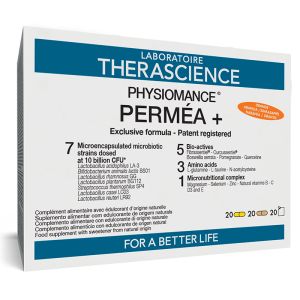
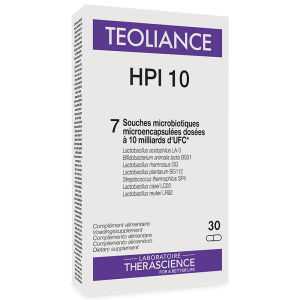
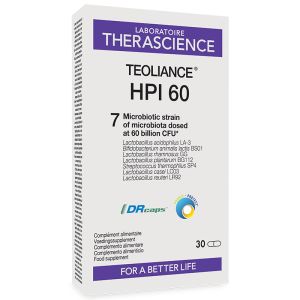
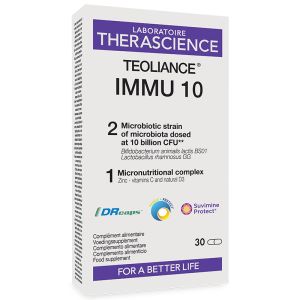
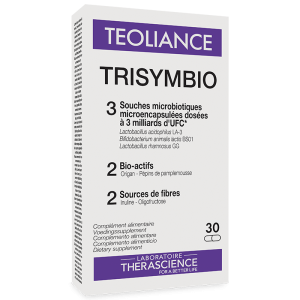

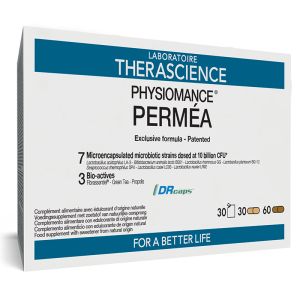
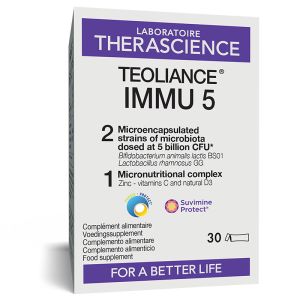
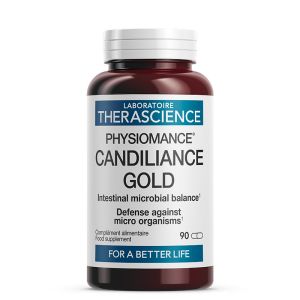
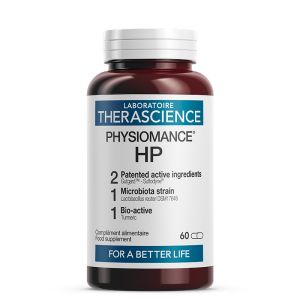
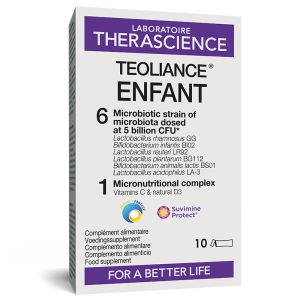


Recommandé par mon médecin, je l'utilise régulièrement, avec de tvoir plus
Avis du 28/09/2024, suite à une expérience du 11/09/2024 par Silvia S